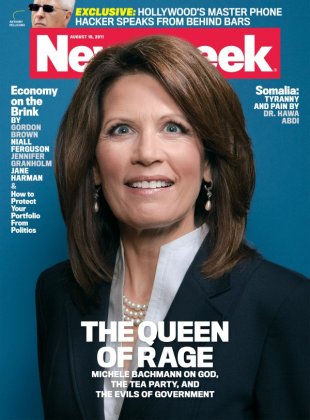 (Newsweek)
(Newsweek)
After years of losing money,?Newsweek announced on Thursday that it will stop printing its magazine and become a digital-only publication.
"Newsweek will transition to an all-digital format in early 2013," editor Tina Brown wrote in an email to employees early on Thursday. "As part of this transition, the last print edition in the U.S. will be our December 31st issue."
The new all-digital publication, called Newsweek Global, "will be a single, worldwide edition," Brown wrote. The e-magazine will be supported by paid subscriptions and made available for e-readers for both tablet and the Web, with some content available on The Daily Beast.
More from Brown's email:
We are transitioning Newsweek, not saying goodbye to it. We remain committed to Newsweek and to the journalism that it represents. This decision is not about the quality of the brand or the journalism, that is as powerful as ever. It is about the challenging economics of print publishing and distribution.
The inexorable move to an all-digital Newsweek comes with an unfortunate reality. Regrettably we anticipate staff reductions and the streamlining of our editorial and business operations both here in the United States and internationally.
In 2010, the Washington Post Company sold Newsweek to audio equipment magnate Sidney Harman for $1 plus the assumption of the magazine's estimated $40 million-plus debt.
Later that year, Harman struck a deal with Brown, editor of The Daily Beast, and Barry Diller's InterActiveCorp (IAC) to run the business. Harman died in April 2011 at 92, leaving his ownership stake to his estate.
[Related: Tina Brown defends controversial Princess Di Newsweek cover]

In July, Harman's family said it would no longer invest in the 79-year-old magazine, leaving Diller and the Beast in full control. During a conference call with investors several weeks later, Diller hinted that the newsweekly?with a circulation of 1.5 million?would soon be a digital-only publication.
"The transition to online from hard print will take place," Diller said. "We're examining all of our options. ...?The brand is good. What's the problem? The problem is manufacturing and producing a weekly newsmagazine. That's going to have to be solved. Advertising in this category is entirely elective. The transition will happen."
IAC?which also owns Match.com, Ask.com and CollegeHumor.com?generates most of its revenue from digital properties.
According to Bloomberg.com, Newsweek is projected to lose as much as $22 million this year. In 2011, ad pages for Newsweek fell 16.8 percent, according to the Publishers Information Bureau?a dismal year following an even worse 2010, when ad pages plummeted nearly 20 percent.
[Related: Did Brown choose Michele Bachmann cover photo to make her 'look crazy'?]
Since taking the reins, Brown, former editor of Vanity Fair and the New Yorker, has put her stamp on Newsweek. She has produced controversial print covers (imagining what Princess Diana would have looked like at 50, for instance, declaring Barack Obama to be the "first gay president" or provoking outrage over with its "Muslim Rage" cover) in a bid to prop up newsstand sales, create buzz and be part of what she likes to call "the conversation."
According to the Audit Bureau of Circulations, those efforts proved futile, at least at the newsstand. Through June, Newsweek's single-copy sales were down 10 percent compared with the first half of 2011, selling an average of 42,065 copies per issue.
Source: http://news.yahoo.com/blogs/lookout/newsweek-print-digital-125249313--finance.html
josh hutcherson google april fools office space shell houston open mega millions winners anthony davis palm sunday
No comments:
Post a Comment
Note: Only a member of this blog may post a comment.